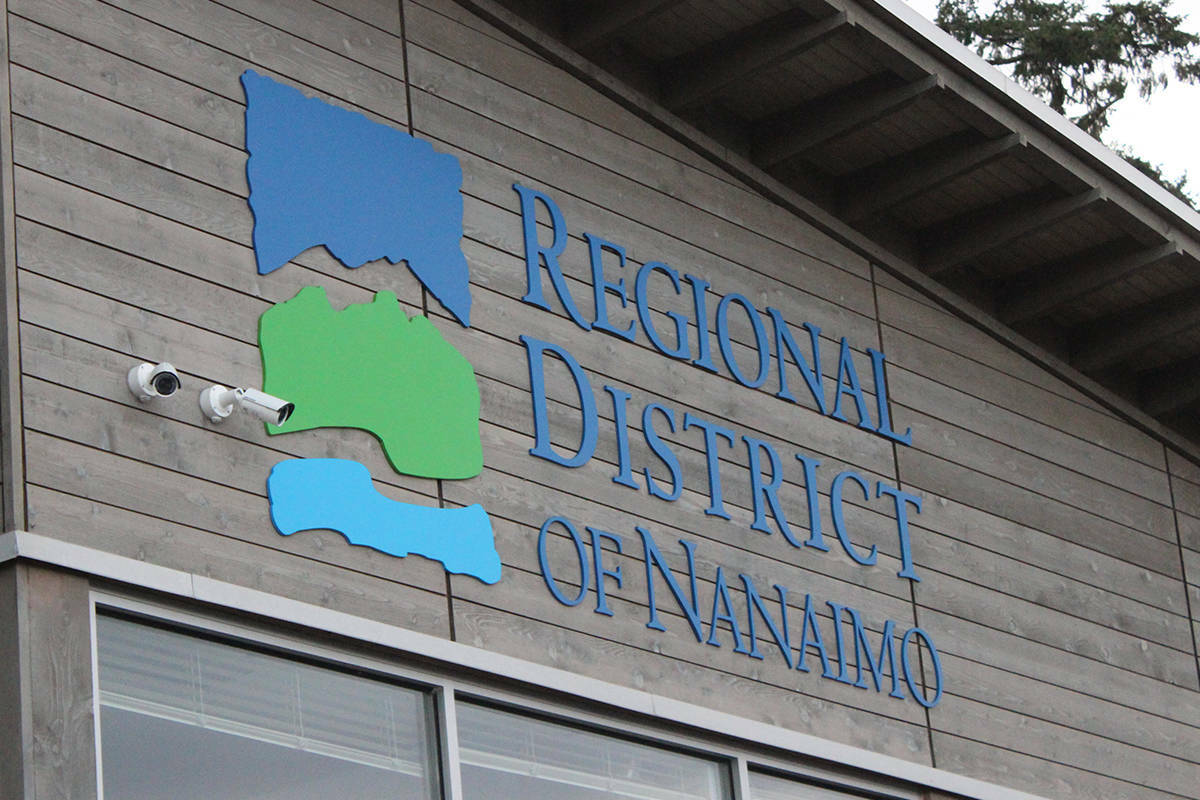The Regional District of Nanaimo is spending $317,000 on implementing recommendations from its environmental committee.
The climate action technical advisory committee, formed to establish RDN climate change policy, compiled a draft report on adapting to, and mitigating, climate change. Ensuring ongoing water supply resilience, revising legislation and policies in order to ensure they are better suited to assist “climate appropriate development and operations” and bolstering support for home retrofits are priority items that were recommended to be enacted immediately and were discussed at a Sept. 7 board meeting.
The plan calls for $60,000 to implement a corporate-carbon neutral plan, $75,000 for sustainable procurement and $30,000 to develop a net-zero building and renewable energy generation strategy.
A Federation of Canadian Municipalities and Insurance Bureau of Canada joint report stated that “avoiding the worst impacts of climate change at the municipal level could cost $5.3 billion per year, shared among the three levels of government,” according to Kim Fowler, RDN long-range planning, sustainability and energy manager.
She told the News Bulletin that some of the work on the corporate carbon-neutral plan work is yet to be determined, but one of the plan’s key “pillars” is to address emissions from the RDN’s vehicle fleet.
In terms of sustainable procurement, work will include reviewing a City of Nanaimo sustainable procurement policy and determining whether it “fits” for the RDN, according to Fowler. There will be a related workshop for board members and a guidebook for staff will be developed.
She said $30,000 for net-zero renewable energy generation is a board strategic plan priority that the RDN will get done next year.
“There isn’t any specific scope given from the board for that, so we’ll be reviewing essentially best practices and what’s being done regionally as well, because there is some work and projects under way within the region,” Fowler said. “It’s basically looking at how to support that.”
The report includes fees for consultants, including potentially $50,000 for implementation of water supply resiliency, $50,000 for reviewing and updating legislation and policies and $52,000 for staff or a consultant to assist with increasing support for home energy retrofits.
Bob Rogers, RDN Area E director, expressed concern about the effect on residents.
“When we take a look at what’s projected within this report, it is going to be a challenge for property owners, are only source of taxing, to be able to cover the cost on this over the years. There is certainly, I think, going to be a need for us to be receiving some federal and provincial grants to help implement and put in place all the recommendations here over the coming 10, 20, 30 years,” Rogers said. “So if we’re not successful in getting that, it certainly does indicate that we do have some work to do to try and better liaise with the senior levels of government to get some grants, or some [assurance] of federal or provincial funding for some of these climate action movements that we have to make.”
Vanessa Craig, RDN vice-chairperson, Area B director and advisory committee member, spoke in favour of the report’s recommendations.
“Through the drinking water and watershed protection program, planning, bylaw reviews, we’ve got a lot of actions under way, but there’s other opportunities to move forward,” said Craig. “I think it’s pretty clear … the costs of not doing it outweigh if we put some effort and funds into it now. It’s just going to become more difficult and more expensive in the long run if we don’t start addressing some of these issues now.”
The board unanimously approved a recommendation asking that resources required to initiate the committee’s priorities be included in the 2022 budget. A final draft of the report will go before the board at a meeting in December.
RELATED: RDN works to become carbon neutral by 2032
reporter@nanaimobulletin.comLike us on Facebook and follow us on Twitter

